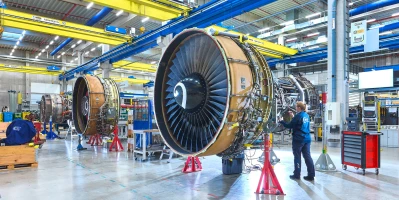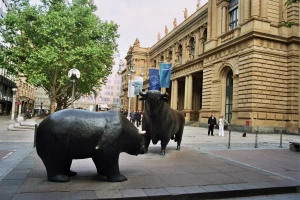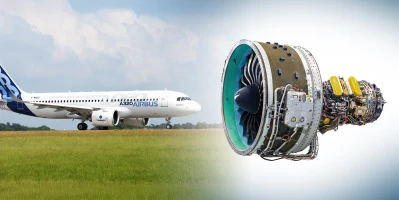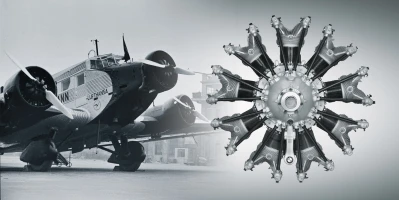people
“Creative minds that make what seems impossible possible”
Lars Wagner, CEO of MTU Aero Engines, on aviation’s emissions-free future and opportunities for the engine makers of today and tomorrow.
author: Nicole Geffert | 4 mins reading time published on: 03.05.2023
author:
Nicole Geffert
has been working as a freelance journalist covering topics such as research and science, money and taxes, and education and careers since 1999.
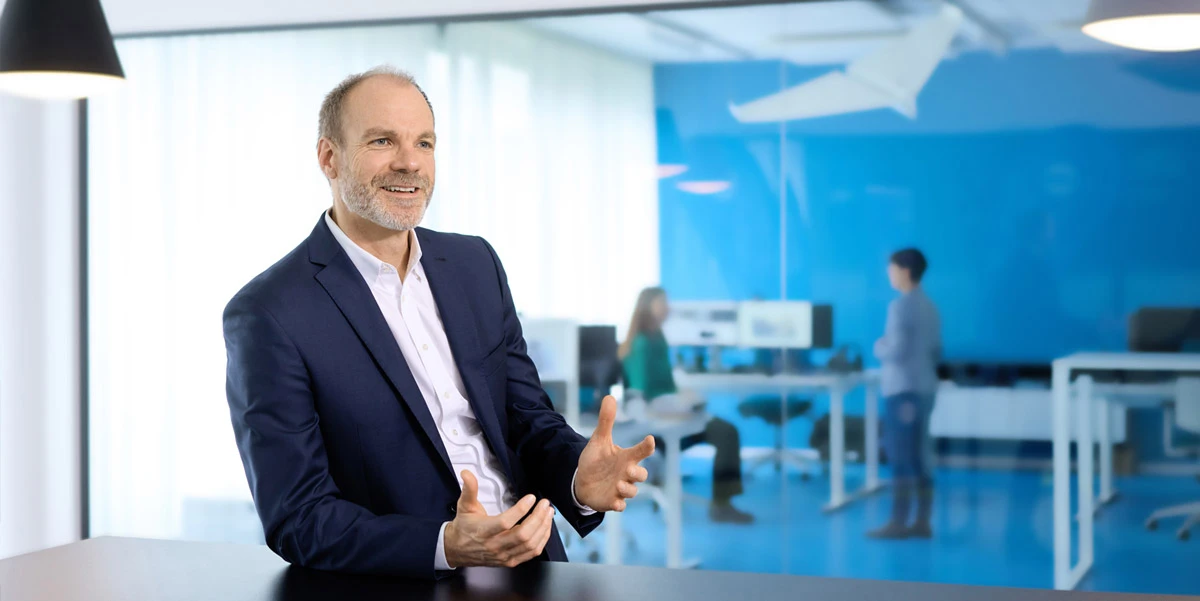
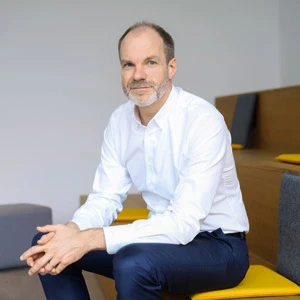
“Change is sweeping through our offices and shops: We’re becoming more digital, more diverse and more agile. Everyone who works here experiences trust, team spirit and camaraderie. At MTU, people are at the heart of everything we do.”
Chief Executive Officer of MTU Aero Engines AG
AEROREPORT: Mr. Wagner, when we look up in the sky ten years from now, will we still see the same aircraft we do today?
Lars Wagner: It’s entirely possible that we’ll glimpse one or two battery-electric air taxis. But when we consider the aviation industry’s long production cycles and long-lasting products, ten years isn’t all that much. So some passenger aircraft will still be powered by conventional gas turbine engines. But thanks to the evolutionary development of our highly efficient gas turbine based on the geared turbofan, and our revolutionary water-enhanced turbofan propulsion concept, we can drastically reduce emissions—and that’s without having to redesign the aircraft.
AEROREPORT: In the future, will we see a mix of different technologies?
Wagner: Yes we will. We’ll implement new technologies where they are most efficient. Today, all passenger aircraft are powered by kerosene, but the future will widen the options considerably. Our aim for the Flying Fuel Cell™ is to create a hydrogen-powered propulsion system for aircraft that carry up to 100 passengers. For 150- to 200-seater aircraft, it’ll be gas turbines running on synthetic fuels or hydrogen that will provide thrust. And we expect that gas turbines running on sustainable fuels will also be powering long-haul widebody aircraft with 250 seats and over.
AEROREPORT: Aviation remains under pressure due to its contribution to global warming. Is the dream of flight soon to be over?
Wagner: No, mobility without aviation is out of the question, and people’s desire to travel is as strong as ever. Remember that aircraft carry not just passengers but also goods around the world. But there’s no getting around the fact that we must drastically cut emissions. That we develop increasingly efficient engines isn’t news; MTU has being doing it for decades. And it’s a path we’re continuing along, only it’s going to take everything we’ve got if we want to make flying climate-neutral and then emissions-free. The next ten to twenty years are going to be incredibly demanding, but we have a responsibility to the next generation to succeed. I have children and I want them to be able to shape their own future on this planet.

AEROREPORT: The industry is currently dominated by topics such as artificial intelligence, digitalization and the smart factory. What opportunities do these open up for engine makers?
Wagner: For MTU and myself, these are much more than buzzwords—they are both our present and our future. We offer engine makers the chance to participate in exciting innovation projects that allow them to achieve entirely new developments. Together with our research partners and with companies specializing in, say, robotics, we’re enhancing our production by developing everything from ever more efficient processes to entirely new production lines. Digitalization is helping us become even more efficient and productive. Smart automation is already essential for the geared turbofan. What’s special here is that these plants and processes tend not to be found in any other industry, which puts MTU at the cutting edge of innovation.
AEROREPORT: MTU is known the world over for its innovative technologies. How do you foster creativity among your employees?
Wagner: For decades, we’ve been involved in close and interdisciplinary collaborations with research partners to drive innovation forward. We also maintain in-depth dialogues with think tanks, start-ups and other future-oriented teams—always on the lookout for the next technological leap forward. And in addition to their regular duties, we provide our experts with the freedom to brainstorm and experiment, for example in MTU’s Digitalization Lab and Inno Lab, where they can try out digital technologies and unconventional ideas, but also scout global trends.
AEROREPORT: You studied aerospace engineering. What is it that still fascinates you about this field?
Wagner: In actual fact, I wanted to become a pilot. (laughs) I’m sure a lot of engineers who dreamt of sitting in the cockpit but ended up studying aerospace engineering say the same. I fell in love with flying when I was a child and that love has never waned. What motivates me are the goosebumps I get every time I see an aircraft fly. This enthusiasm and the unbridled enjoyment I have in my job are what drives me.
AEROREPORT: What message would you like to give the engine makers of today and tomorrow?
Wagner: First, I’d like to congratulate them on choosing the right industry. We’re delighted to have creative minds who channel their drive and passion into using technology to make what seems to be impossible possible. Even when we’re immersed in our work, we’re always thinking about our customers and their requirements. Yes, we work in an industry that is steeped in tradition, but that doesn’t make us old school. Change is sweeping through our offices and shops: We’re becoming more digital, more diverse and more agile. Everyone who works here experiences trust, team spirit and camaraderie. At MTU, people are at the heart of everything we do.



